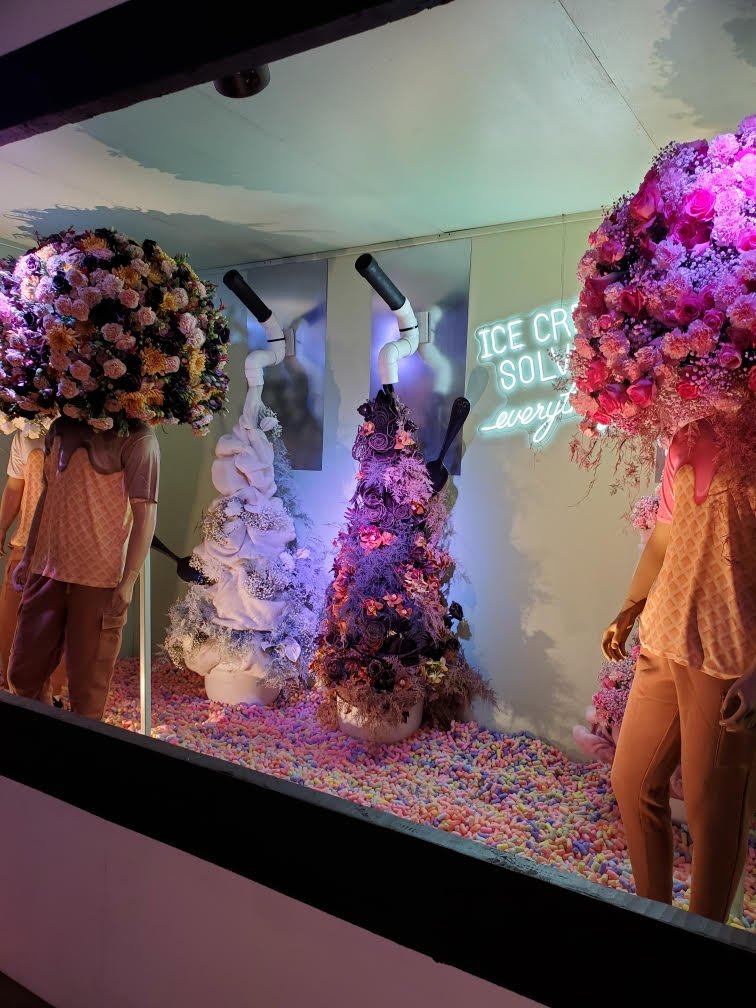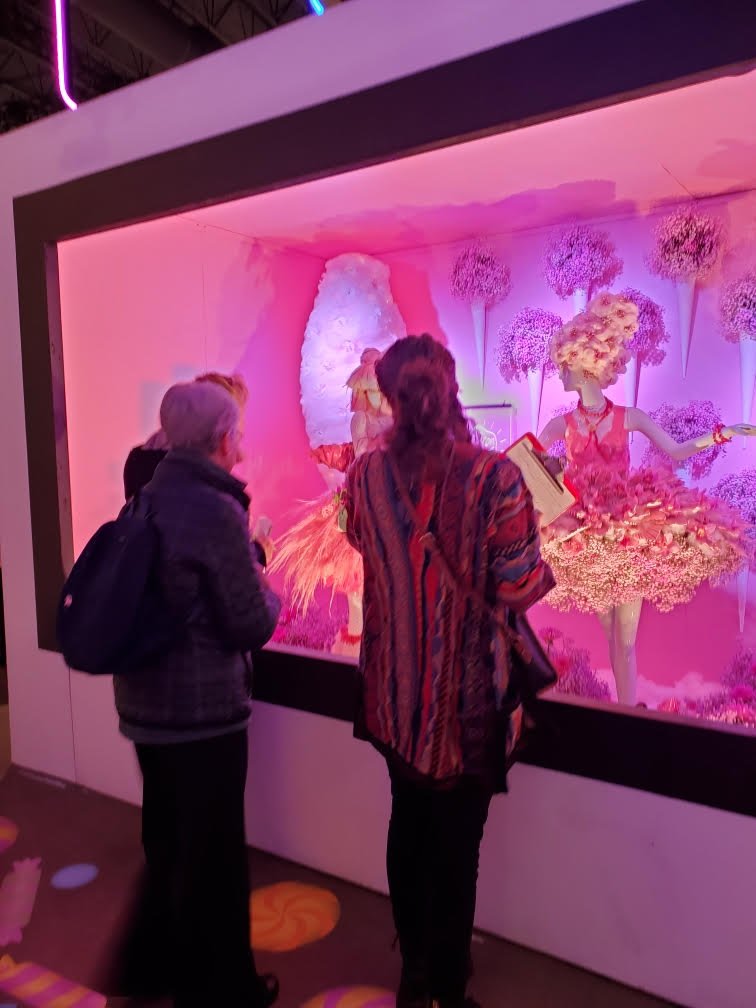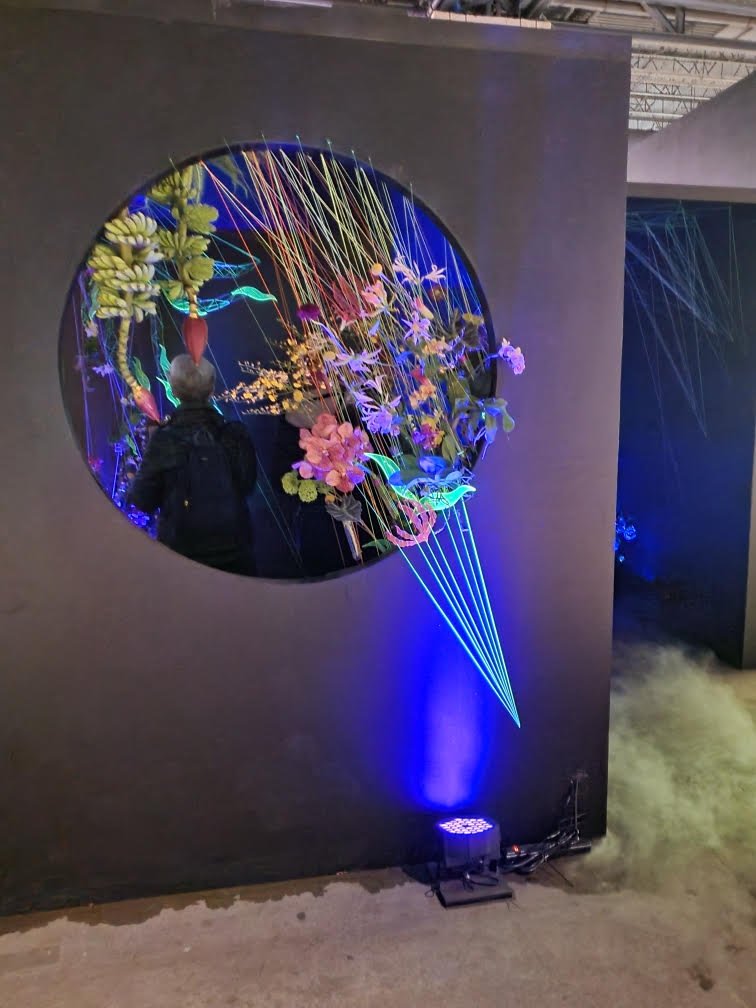
Philadelphia Flower Show
The Garden Electric
March 4-12, 2023
Philadelphia Convention Center
The Pennsylvania Horticulture Society (PHS) holds its flower show yearly “to amaze visitors with an exciting floral experience, bringing together dynamic designers, bold exhibits, world-class shopping, education, music, food, and family fun.”
The Pennsylvania Horticultural Society asks one of the state's Judges Councils to judge parts of the show. It's an honor to be invited. The Laurel Highlands Judges Council was invited this year. Three judges judged large designs over 1,000 sq ft., Charlotte Crissey (pictured above) Mary Jo Gardill and Rani Murali, while three other judges judged horticulture exhibits, Claire Lectliter from Bedford GC, Margie Bucci from Indiana GC and Carol Hite from Bedford GC. Sheila Croushore from Somerset GS also judged.)
The judging took about three hours.
The show included horticulture entries by club members from across the state and landscape designs by professional landscape designers and garden centers. There were numerous other classes: orchids, murals, ikebana, botanical illustrations, jewelry, pressed plants, photography, decorated windows and doors and even a display of antique gardening tools. Schools had entries as well.
The Marketplace was filled with every gardening accoutrement imaginable and they were flying off the shelves.
The judges were treated to a continental breakfast before judging and a delicious buffet for lunch before we went our separate ways to shop, tour or head home to beat the anticipated snow storm.
.
Horticulture
A sample of some of the horticulture that placed at the show.
Truly Electric Bulbs
There are an estimated 6-7 billion tulip plants grown annually in the Netherlands alone, and tulips have an extraordinary gift for mutation, possibly due to having four to 10 times the human equivalent weight of DNA in their system.
Tulips originated in the high mountain steppes of Asia and initially came westward with traders and adventerous botantists. Around 1600, some tulips were infected with a virus that caused amazing color variations, resulting in the famous Tulip Mania era. However, the infected tulips could not reliably reproduce, thus crashing the market. Some virus infected tulips were preserved but only under strict controls.
This could have ruined the market, but gardening interest persisted because of their basic beauty. It was also discovered that tulips could mutate readily on their own, and that beautiful hybrids could be created and produced artificially.
Tulips have benefitted greatly from genetic engineering. To learn more about the tulip breeding process, see information from the Amsterdam Tulip Museum. The Breeding Process : The Museum (amsterdamtulipmuseum.com)
Candy Alley
Mary Jo Gardill, facing frontward, takes a walk down Candy Alley with Charlotte Crissey to view Ice Cream Cone and Ballerina design exhibits.
Dry ice in the rear gives this exhibit its foggy appearance, while uplighting in the front adds color. The two pictures above show the front and rear view of the same exhibit.
Creative lighting enhances these exhibits, whether hanging from the ceiling or closer to the floor with a kaleidoscope effect.
Picture yourself on your back patio. The foggy effect near the left side and fire inside the globe create a relaxing ambience.
Garden Club of Johnstown judges discussed and admired the exhibits for this year. They look forward to returning next year to see what exciting new entries there will be.
To see more beautiful pictures of the show, see the PHS Facebook page: philadelphia flower show 2023 - Search Results | Facebook


















